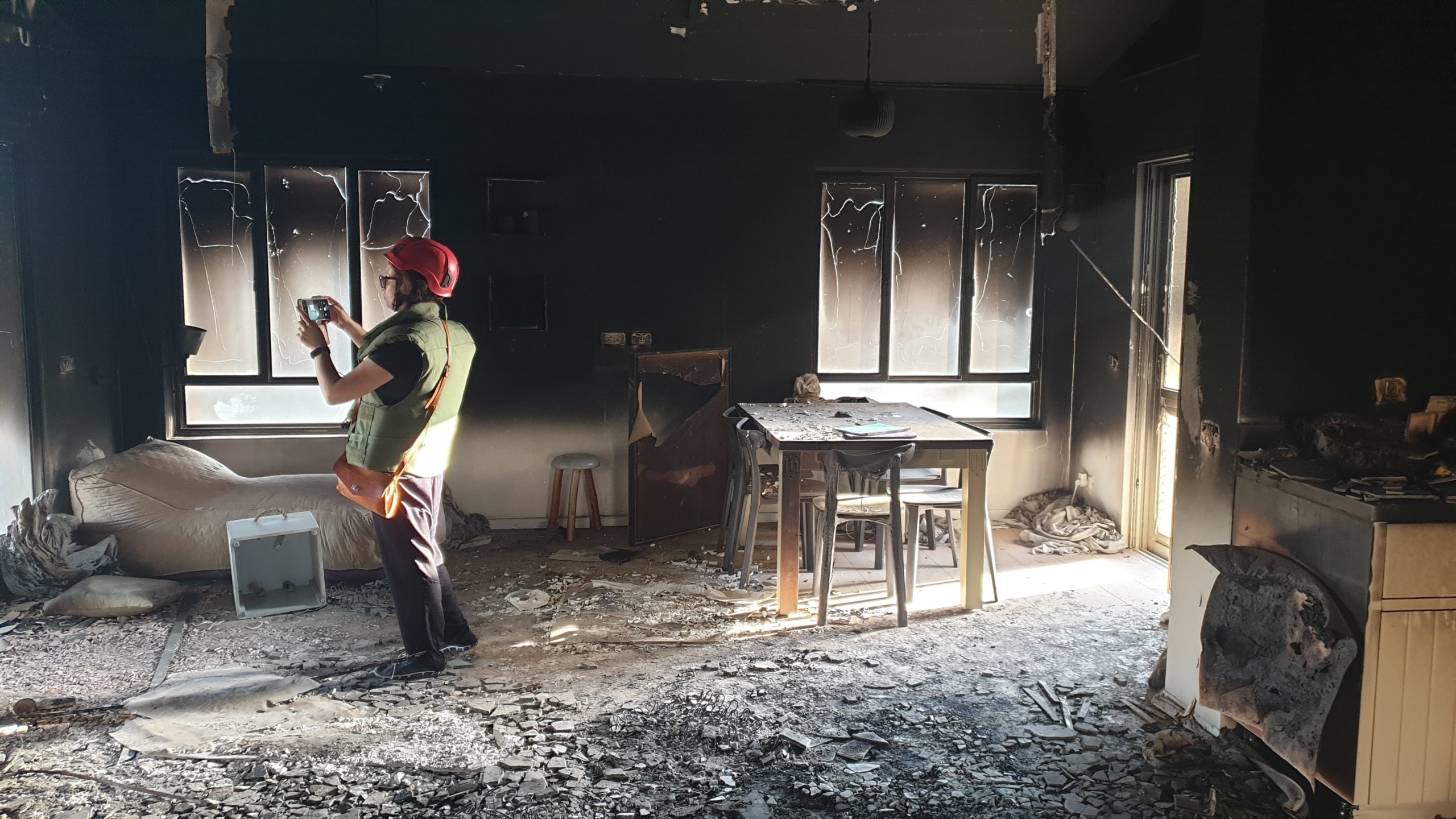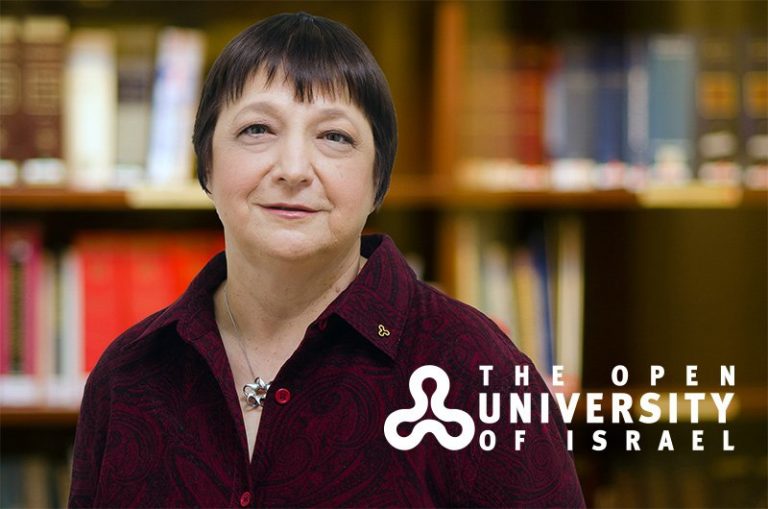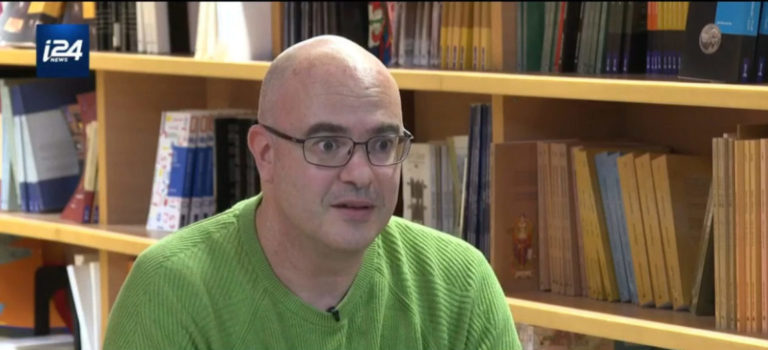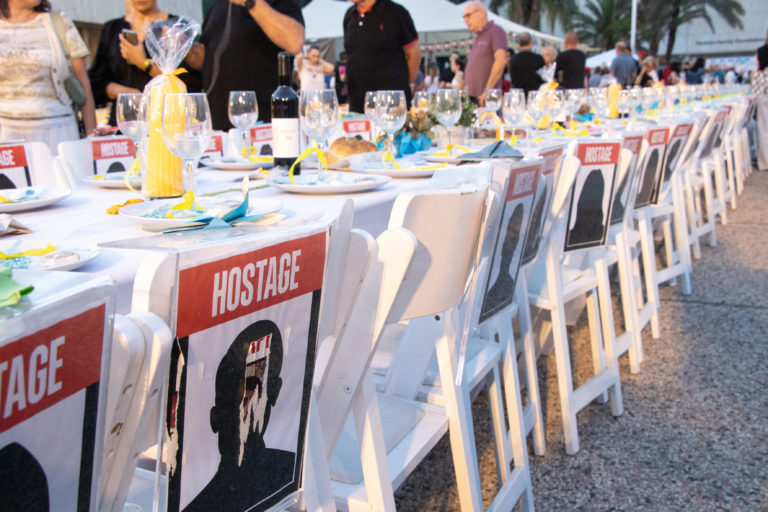Every Bit of Blood has a Soul
The brave ZAKA volunteers gathered at the Open University video studios to document on camera their heroic and sacred work during the days following the bloody Sabbath. A heterogenous group of volunteers/angels. Women and men, religious and secular, Jews and Muslims who risked their lives and put their souls on the line with a sense of a higher purpose. This is their story.
Edna Tal Alhassid, Director of the SHOHAM – The Center for Innovation in Learning Technologies
“My name is Margalit, I am married and a mother of four. I’m from Kiryat Arba. I am a trained reflexologist and a doula. I have been volunteering with the police force for ten years, and when they opened a ZAKA course, I registered. I wanted to be part of our community team, so that if something happened, I could respond quickly.
“Something that touched my heart was a home that obviously belonged to a very old man who lived alone; you could see by the furniture. There was a television corner where he sat. There were many bullet cases scattered around and they shot this old man while he was sitting in his armchair. They surprised him and shot him, just like that. You could see all of his belongings, his glasses, his old-fashioned address book, from a time when people wrote down phone numbers. And the photos of his grandchildren. It was a difficult sight. I thought about his children and grandchildren. Maybe he was even a Holocaust survivor? And then just like that, enemies came in from outside and surprised him at that morning hour in his armchair. I walked around and noticed the flowering gardens and the potted plants. I thought to myself, what will they be coming back to? They tended to everything so carefully. So I decided that in every house that I finished cleaning, I would turn on the hose and water all of the plants around the house. I don’t know if I was giving more to them or to myself. But I guess I felt the need to make something grow, the need to revive…
“As I walked through the sand, I suddenly saw something peeking through. In the ground, I found this bracelet that’s on my arm. I knew that this place was going to be a ghost town and that people would come and take everything there. So I decided that I would take the bracelet with me. Of course, I am looking for its owner, but I felt the need to take one thing with me as a memento. So that every day, I can see it in front of me. So that I remember that people just came to enjoy themselves, to get dressed up, and to dance…”
“My name is Jamal, I am married and I am 32 years old, from Rehovot. In normal times, I work at Egged as the manager of an operations control team. I served in the Border Police and I would see the ZAKA volunteers come to scenes and do the work that no one else could do. I said to myself that I had to be part of these people. I am an Israeli Arab Muslim citizen. I do my part for this country and I know what it means to be Israeli. There’s a difference between war and crime. War is when one army faces the other. War is not a platoon of armed fighters against innocent citizens, whose only crime is the fact that they are Jewish Israelis. This is not a war; it is a hate crime, it is murder, it is a holocaust. Until today, we spoke about the Holocaust, but from now on we will mention the Holocaust and the “Black Shabbat.” This event cannot be justified in any way. We Muslims say that the prophet Mohammed said that in a war, one does not murder children, one does not murder women, one does not murder the elderly. They should not be murdered.
“Before everything else, I am a human being. No country in the world could tolerate such a large tragedy. No country in the world is built to tolerate the amount of cruelty and the number of wars that we have undergone. These are terrorists who are not connected to any religion. Israel will always remain strong and we will prove that it is possible to live alongside each other in Israel. We will continue to be one strong nation in Israel. Muslims, Druze, Jews, Christians. We are one nation, and we will never part ways…”
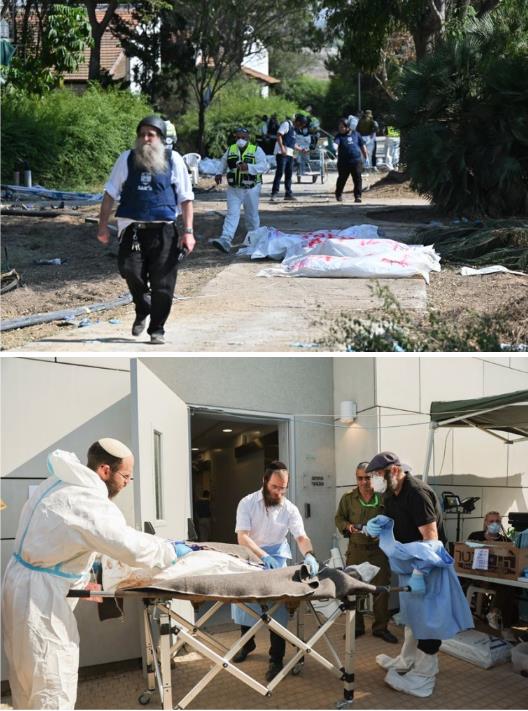
“My name is Elazar, I am 27. At a very young age, I dropped out of the school system. I had two options: crime, or to do something with myself. I somehow encountered ZAKA ten years ago, and ever since, they have been my family, in the most literal sense. This is the place that shaped me into who I am today. The people there embraced me just like family. Thanks to them, I can consider myself an ethical person.”
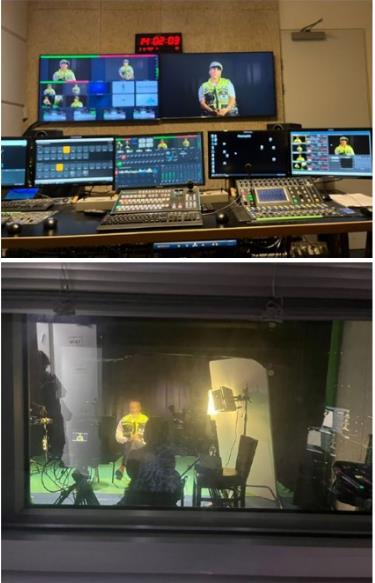
“My name is Yossi, and I am the father of four children and I live in Gedera. I am an attorney by profession. I served in an elite unit in the Israeli Navy and that is where I gained the experience that I bring to the ZAKA unit called “ZAKA divers.” We practice and prepare all year round to search for missing people in the sea. Most of the time, what we find underwater are bodies, not survivors. People who went out for a swim, fell out of boats, or were pulled out to sea. This event takes me back years, to my experiences while participating in the search for the Dakar submarine. The search lasted 31 years, and I had the privilege of being part of the team that searched for the submarine until it was finally found. The principle that guided and continues to guide me today in the unit, and which I try to pass on to the younger guys as well, is that we do not leave anyone behind. This connects to our task: we aren’t actually part of the official search and identification of bodies, or collection of tissue. We simply fought for the privilege of coming and volunteering. After we finished the work, we said, “Okay, we can’t leave the house like this.” So we took a mop, rag and soap, and we washed the floors. A friend said to me, ‘Listen, no one is coming back here, but at least if someone can see us from heaven, they shouldn’t feel angry that their house is such a mess.’”
“My name is Ilan, and I am married and have four children. I live in Ra’anana. I immigrated from France eight years ago. I volunteer in the divers’ unit of ZAKA. It is a special unit that finds missing people in the sea. We aren’t the first ones who are called, but simply because of the quantity of casualties, everyone was called. Everyone who wanted to and was able to volunteer should come to help.”
“My name is Aharon, and I am 31 and live in Jerusalem. I am married and have a sweet three- year-old daughter for whom we waited many years. I did National Service at ZAKA and I have been there ever since. I really connected to the idea of honoring the dead. I am a medic by profession, and just like we save lives in honor of living people, it is also important to honor the dead.”
These are some of the ZAKA volunteers who came to the Open University Ra’anana campus to be recorded at the Shoham video studios. They are a heterogeneous group of volunteer- angels – religious, secular, women, Muslims. Each and every one comes from a different world and background. Each have joined ZAKA for their own reasons. A school principal, a doula, a crane operator, a PR manager, a plumber, a trip blogger, a lawyer, a chef, a cyber and information security professional, and others. The common denominator is their strong and incredible desire to sacrifice their souls and give of themselves for the benefit others. To save lives and to honor the sanctity of the dead.
These angels demonstrated their absolute dedication on October 7, when they dropped everything – family, home, and work – and began the evacuation of bodies under fire, day and night, risking their lives and putting their souls on the line with a sense of higher purpose. When they gave their testimonies in our studios, they were accompanied by licensed trauma therapists from the Amcha organization.
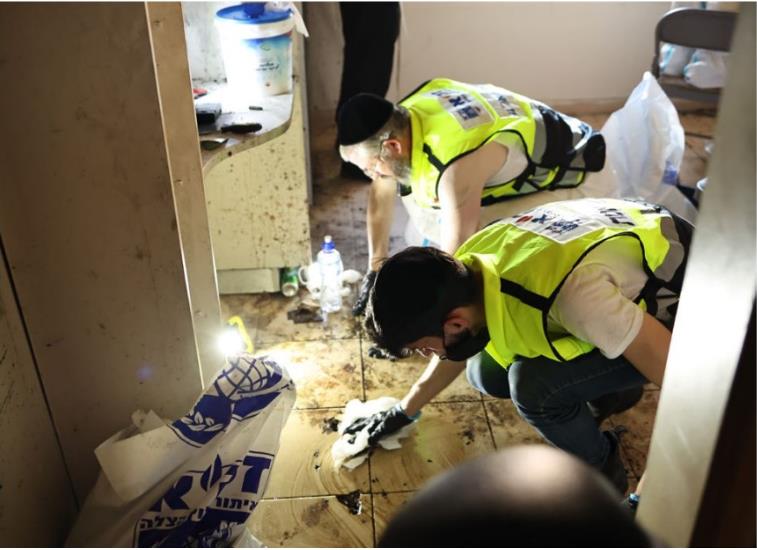
Dozens of initiatives have started documenting the war over the past weeks, including testimonies of survivors of the Nova party, survivors from the kibbutzim and cities, security forces, evacuees, families of those murdered and kidnapped, ZAKA volunteers and others. The documentation is done on camera, in writing, and orally. For this purpose, during the second week of the war, the Israel Oral History Association initiated the joint forum for leaders of initiatives to document the war, with over 340 members. An independent forum of professionals who came together to facilitate joint thinking, coordination, and collaboration of knowledge and resources. The forum includes members of Yad Vashem, the National Library, the Zionist Archives, the Association of Israeli Archivists, documentary producers, researchers, historians, media professionals, lawyers, therapists, production and photography professionals, and others. The testimonies will be used for public relations, research, investigations, and historical documentation, which will certainly be very valuable many years from now. I am also a member of the forum, representing the Open University, and I offer photography and production services at our studios to organizations interested in recording testimonies.
Every bit of blood has a soul. Angels doing sacred work. Righteous among the nations.

